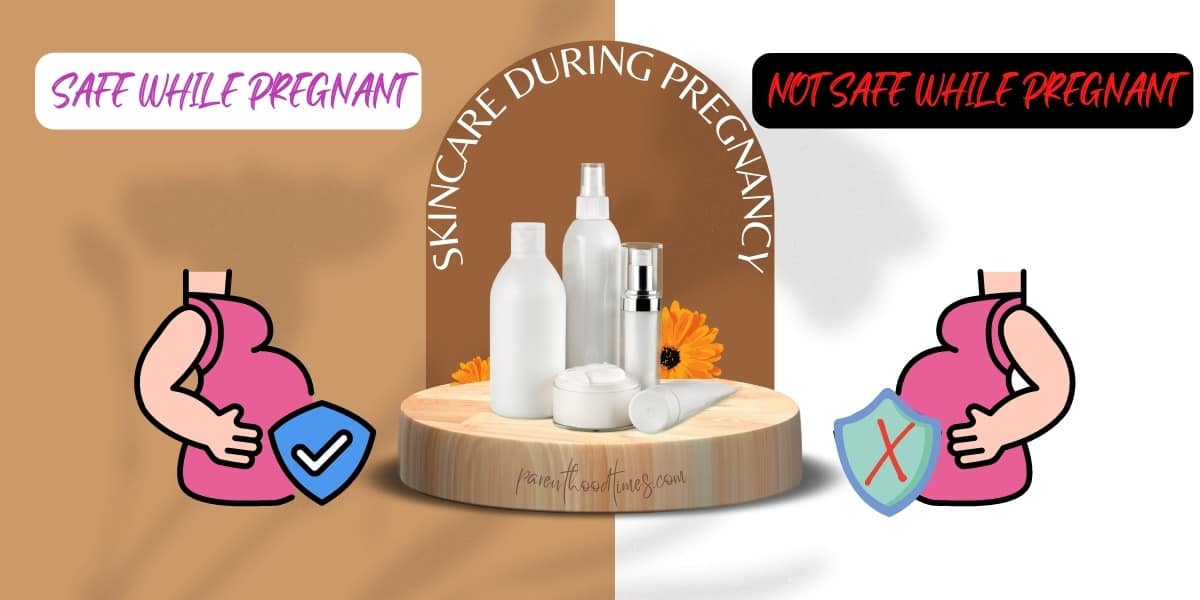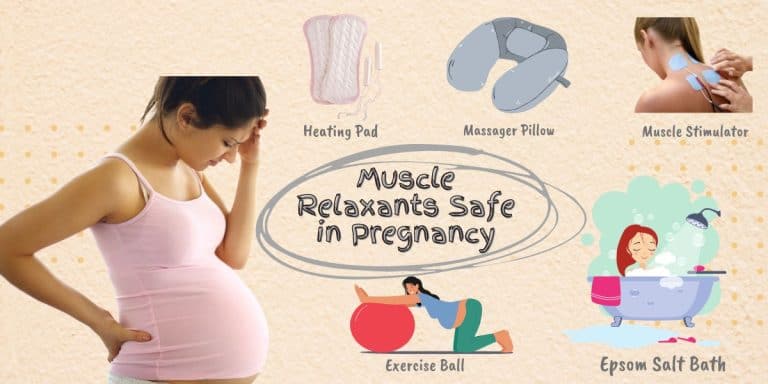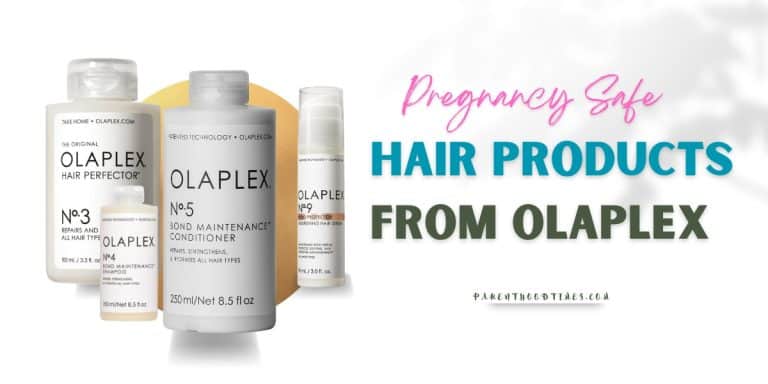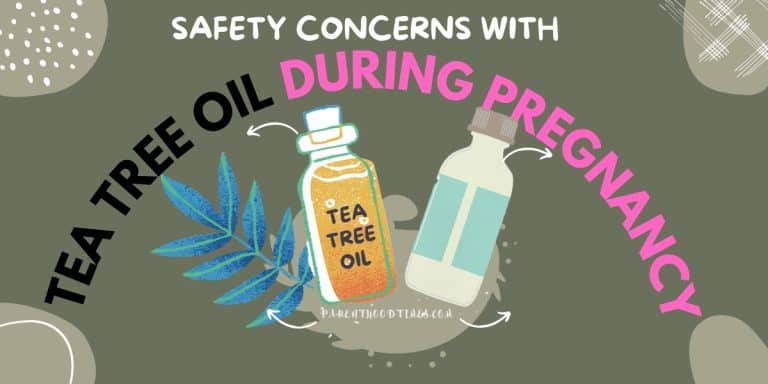Skincare During Pregnancy: What’s Safe and What’s Not
Pregnancy can bring about a number of changes to a woman’s skin, including dryness, itching, stretch marks, and acne. It’s important to take good care of your skin during pregnancy to help keep it healthy and young.
When it comes to skincare during pregnancy, there are things to consider so you can properly take care of yourself and the baby growing inside you. Without further ado, let’s dive in!
Skincare During Pregnancy
It is important to pay extra attention to skincare during pregnancy as the body undergoes various changes. While you may feel your body depends on you, your baby also depends on your body. Keeping them both healthy as you go through this motherhood journey is important. Here are a few tips for taking care of your skin during pregnancy:
- Choose a body cleanser that is gentle and fragrance-free.
- Utilize a gentle and toxin-free moisturizer since keeping the skin moisturized can help to prevent dryness and irritation.
- Try to avoid prolonged exposure to the sun and hot water, as both can dry the skin out.
- Since pregnancy breakouts are very common, try to resist the temptation to pick at blemishes, as this can lead to scarring and inflammation.
It’s also important to drink plenty of water and eat a balanced diet to help keep your skin healthy during pregnancy. Additionally, avoid certain skincare ingredients during pregnancy, such as retinoids, hydroquinone, and oxybenzone. This probably leads to the following question:
Can you use skincare products while pregnant?
Yes, you can use skincare products while pregnant. Except for products that contain a few certain ingredients, most skincare products are considered safe to use during pregnancy. Still, we recommend consulting with a healthcare provider or dermatologist before using any new skincare products during pregnancy.
It is important to remember that hormone levels are higher during pregnancy, so your skin can be more sensitive to some products. Therefore, you must apply only a small amount of the product and wash it off within 24 hours after application.
The best way to ensure that you are using safe skincare products is to buy those free of additives and chemicals. This will ensure that you do not expose yourself or your baby to harmful substances.
Skincare ingredients to avoid in pregnancy
Toxic ingredients found in some skincare products may result in fetal disabilities. So it’s a good idea to be mindful of the ingredients in your skincare products and to avoid using products that contain certain ingredients.
Here are a few common skincare ingredients that you may want to avoid during pregnancy:
Retinoids: They are vitamin A derivatives commonly used in skincare products to improve the appearance of fine lines, wrinkles, and uneven skin tone. Several studies on retinoids have shown that taking retinoids increases the risk of birth defects, while the link between topical vitamin A usage and birth defects is still very much unknown.
Hydroquinone: Hydroquinone is an ingredient commonly used for the treatment of hyperpigmentation. But because of its potential toxicity, pregnant women should avoid hydroquinone.
Phthalates and formaldehyde: Phthalates and formaldehyde are both known to cause skin irritation. Some studies have suggested that phthalates may be harmful to fetal development. Formaldehyde is a known carcinogen that’s also associated with birth defects. So if you’re pregnant, it’s best to steer clear of them.
Oxybenzone: It’s one of the common ingredients in chemical sunscreens ingredients. A recent study has shown that oxybenzone can contaminate the placenta and disrupt the endocrine system.
High doses of salicylic acid: Salicylic acid is a commonly used ingredient in acne-fighting products. It also exfoliates and helps remove dead skin cells from the surface of your face. Pregnant women should avoid skincare products with high concentrations of salicylic acid, as its excessive use can lead to fetal abnormalities.
Synthetic fragrances: These can irritate the skin and may not be good for the skin during pregnancy. Instead, look for products that are fragrance-free or that use natural fragrances.
To be on the safer side, consult with a healthcare provider or dermatologist before using any new skincare products during pregnancy. They can help you determine which products are safe to use and which ones to avoid.
Safe Skincare Options for Pregnancy
Below are some safe skincare tips you can follow to tackle skin challenges during pregnancy.
What to use for acne during pregnancy?
Acne is a common skin concern during pregnancy, as hormonal changes can lead to an increase in oil production and the development of acne. To manage acne during pregnancy, try skincare products that contain ingredients such as:
Glycolic acid and salicylic acid: The ACOG recommended these two natural ingredients in alpha hydroxy acids are safe for pregnant women. However, make sure they are not in excessive amounts in your chosen skincare products. Glycolic acid and salicylic acid work to exfoliate the skin and improve its texture without causing irritation or over-exfoliating the skin.
Benzoyl peroxide and hyaluronic acid: These ingredients keep pores clean without causing irritation or drying out the skin. They have also shown promise as safe and effective treatments for healing wounds faster and reducing scarring.
If you are struggling with acne despite trying over-the-counter products, your healthcare provider may be able to recommend a safe acne treatment option for you.
What to use for anti-aging/wrinkles during pregnancy?
It’s common for pregnant women to experience changes in their skin, including dryness, stretch marks, and an increase in pigment. However, it is generally not recommended to use anti-aging products or treatments during pregnancy, as the safety of many of these products and treatments has not been established during pregnancy. However, there are a few safe options you can try.
Face serums: Many popular face creams and serums available on the market contain antioxidants such as vitamin C or E to protect you from free radicals. These work like magic to shield you from the damage that free radicals inflict on your skin. They also help maintain collagen, which helps keep your skin healthy by protecting it from damage, which prevents wrinkles and fine lines.
Hydroxy acids: Treatments with hydroxy acids are effective at reducing the appearance of wrinkles because this group of chemical exfoliants helps exfoliate the dead skin cells for brighter and softer skin.
Azelaic acid: This skin-friendly dicarboxylic acid is very helpful in reducing clogged pores and refining the skin’s surface. It does not work as quickly as vitamin C serums, but it is more effective over a longer time.
Green tea: Green tea also has antioxidant properties that work against free radicals that damage your skin cells and cause aging.
What to use for dry skin and stretch marks during pregnancy?
Stretch marks typically start to fade after pregnancy, but it’s possible to prevent the onset of stretch marks by staying hydrated. Besides staying hydrated, the following products can also help fight dry skin and stretch marks:
Coconut oil: This ingredient adds hydration without making the skin feel greasy. It also contains healthy fats that act as an emollient, which helps lock in moisture.
Cocoa butter: Like coconut oil, cocoa butter is an emollient that moisturizes the skin and keeps it feeling soft.
Peptides: These tiny chains of amino acids are naturally present in the body — they play a role in wound healing, for instance — but they’re also added to topical products like lotions and moisturizers to reinforce collagen production. The result? More supple skin.
No magic creams or lotions can help prevent pregnancy stretch marks. So keeping your skin moisturized is the best thing you can do to reduce the risk of developing stretch marks. While looking to buy a moisturizer, be it a stretch marks cream or lotion, go for the one formulated for sensitive skin and contains ingredients like ceramides, glycerin, or shea butter.
A humidifier can also be helpful to keep your skin moisturized during the winter months when the air is dryer. Keep in mind that it is not a substitute for proper skincare.
What to use for sun protection during pregnancy?
Protecting yourself and your growing baby from the sun’s harmful rays is important.
Look for a broad-spectrum sunscreen with an SPF of at least 30. Apply it to all exposed skin, and make sure to reapply every 2 hours or after swimming or sweating. Mineral-based sunscreens are considered safer than chemical-based ones. They use zinc oxide and titanium dioxide as active ingredients and have a reflective effect on the skin, which prevents UV rays from penetrating your skin. They are less likely to cause allergic reactions than traditional sunscreens with chemicals.
Related: The best pregnancy-safe sunscreens
Pregnancy-Safe Skincare Brands
If you are looking forward to revamping your skincare routine and looking for suggestions, there are several skincare brands that offer pregnancy-safe skincare products. Some examples include:
- Burt’s Bees: Burts Bees claims that its products are of over 95% natural origin and don’t have the harmful chemicals that pregnant women should avoid. This brand offers a range of natural skincare products like facial masks, face creams, lip balms, body oils, and other products that are formulated with pregnancy in mind.
- Mama Mio: As the brand name suggests, they specially make skin care products for expecting moms. They offer a range of facial cleansers, moisturizers, body lotions, stretch marks creams, and oils formulated with pregnancy-safe ingredients.
- Earth Mama: This brand also advertises that its products are free from ingredients like retinoids, salicylic acid, and synthetic fragrances. Hence their selection of organic skincare products like belly oils, belly butter, scar balms, and body washes are safe to use during the whole motherhood journey– from pregnancy and postpartum to breastfeeding.
- Mustela: This is a pretty good brand for pregnant women and new mothers. Although on the pricey side, their selection of skin care products is mostly natural and safe for use during pregnancy and breastfeeding.
- Belli Skincare: Belli has a lot of skincare and makeup products that are pregnancy-friendly. Known for putting high importance on safe, clean ingredients, it’s no wonder their products are well-rated by the Environmental Working Group.
It’s important to note that the safety of skincare products can vary depending on the individual and the specific product, so it’s always a good idea to consult with a healthcare provider or dermatologist before using any new products during pregnancy. They can provide personalized recommendations based on your specific needs and concerns.
Conclusion
If you’re happy with your skincare routine during pregnancy, don’t go paranoid about what to keep and what to ditch. If you feel a little bothered about particular ingredients, just talk about it to your doctor or dermatologist.
We hope this article has given you all the information you need to approach skincare during pregnancy.







